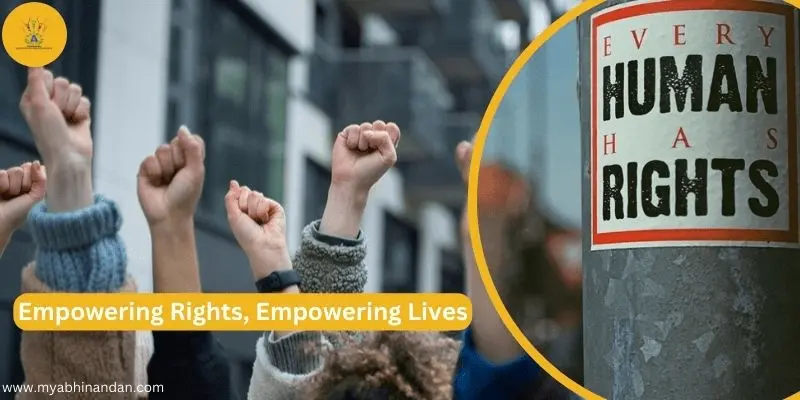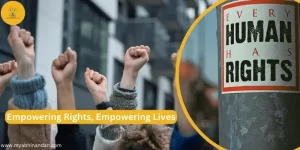The Role Of Indian NGOs in Protecting Human Rights

The Role Of Indian NGOs in Protecting Human Rights

Human rights violations can be hard to spot in the complex world of socio-politics, putting the very essence of humanity at risk. Fortunately, Indian non-governmental organizations (NGOs) are dedicated to protecting human rights, offering a beacon of hope in these difficult times.
The Human Rights Movement
The process of recognizing and safeguarding human rights in India has been a long and challenging one. From drafting the constitution to implementing several legislative reforms, the Indian government has taken significant steps to ensure the protection of fundamental rights.
Recent Human Rights Issues
Despite advancements, recent years have seen a revival of human rights issues in India. From issues of gender inequality and caste-based discrimination to environmental degradation and socio-economic disparities, the landscape is dotted with myriad concerns. The plight of marginalized communities, the erosion of civil liberties, and the threat to freedom of expression serve as stark reminders of the uphill battle that lies ahead.
Why is it Important for NGOs to Protect Human Rights?
In this landscape fraught with challenges, the role of NGOs in protecting human rights cannot be overstated. These organizations serve as the guardians of justice, amplifying the voices of the marginalized and holding the powerful accountable. They provide a crucial lifeline to those in need, offering legal aid, advocacy, and support services to victims of rights violations.
Public Awareness and Advocacy
Central to the work of NGOs is the promotion of public awareness and advocacy. Through grassroots campaigns, educational initiatives, and media outreach, these organizations strive to ignite a collective consciousness around human rights issues. By fostering empathy and understanding, they empower individuals to become agents of change in their communities.
The Reform of Policy
NGOs serve as catalysts for policy reform, driving systemic change at both the local and national levels. Through research, lobbying, and strategic partnerships, these organizations work tirelessly to influence legislation and policy frameworks that uphold human rights principles. From advocating for the rights of women and children to challenging discriminatory laws, NGOs play a pivotal role in shaping the legal landscape of the country.
Empowering and Building Capacity
At the heart of the human rights movement lies the empowerment of individuals and communities. NGOs work towards building capacity and resilience, equipping marginalized groups with the tools and resources they need to assert their rights.
Connecting Government and Communities
NGOs serve as vital intermediaries, facilitating dialogue and collaboration between the government and grassroots communities. By fostering partnerships built on mutual trust and respect, these organizations ensure that policies are responsive to the needs and aspirations of the people they serve.
Social Cohesion Promotion
In a diverse and pluralistic society like India, social cohesion is paramount to the protection of human rights. NGOs play a pivotal role in promoting interfaith harmony, cultural diversity, and social inclusion. Through inter-community dialogues, peacebuilding initiatives, and cultural exchanges, these organizations foster a sense of unity amidst diversity.
Development of Human Rights
The journey towards realizing human rights is not static but dynamic, evolving in response to changing socio-political realities. NGOs play a critical role in advancing the discourse on human rights, pushing boundaries, and challenging entrenched norms and practices. Through research, advocacy, and strategic litigation, these organizations contribute to the progressive interpretation and application of human rights principles.
Critical Analysis of Human Rights
While the human rights movement has made significant strides, it is not immune to critique. NGOs must engage in critical self-reflection, interrogating power dynamics within their organizations and the broader movement. By embracing diversity, inclusivity, and intersectionality, these organizations can ensure that their advocacy remains responsive to the complex.
Constructive Criticism of Human Rights NGOs and their Work
Criticism, when offered constructively, catalyzes growth and innovation. NGOs must welcome feedback from stakeholders, acknowledging their limitations and areas for improvement. By fostering a culture of accountability and transparency, these organizations can enhance their effectiveness and legitimacy in the eyes of the public.
In conclusion, the role of Indian NGOs in protecting human rights is both indispensable and transformative. In the face of adversity, these organizations stand as beacons of hope, championing the cause of justice, equality, and dignity for all. As we navigate the complexities of the human rights landscape, let us stand in solidarity with those on the frontlines, reaffirming our commitment to the timeless principles of humanity and compassion. Together, we can build a future where every individual is treated with the respect and dignity they deserve.